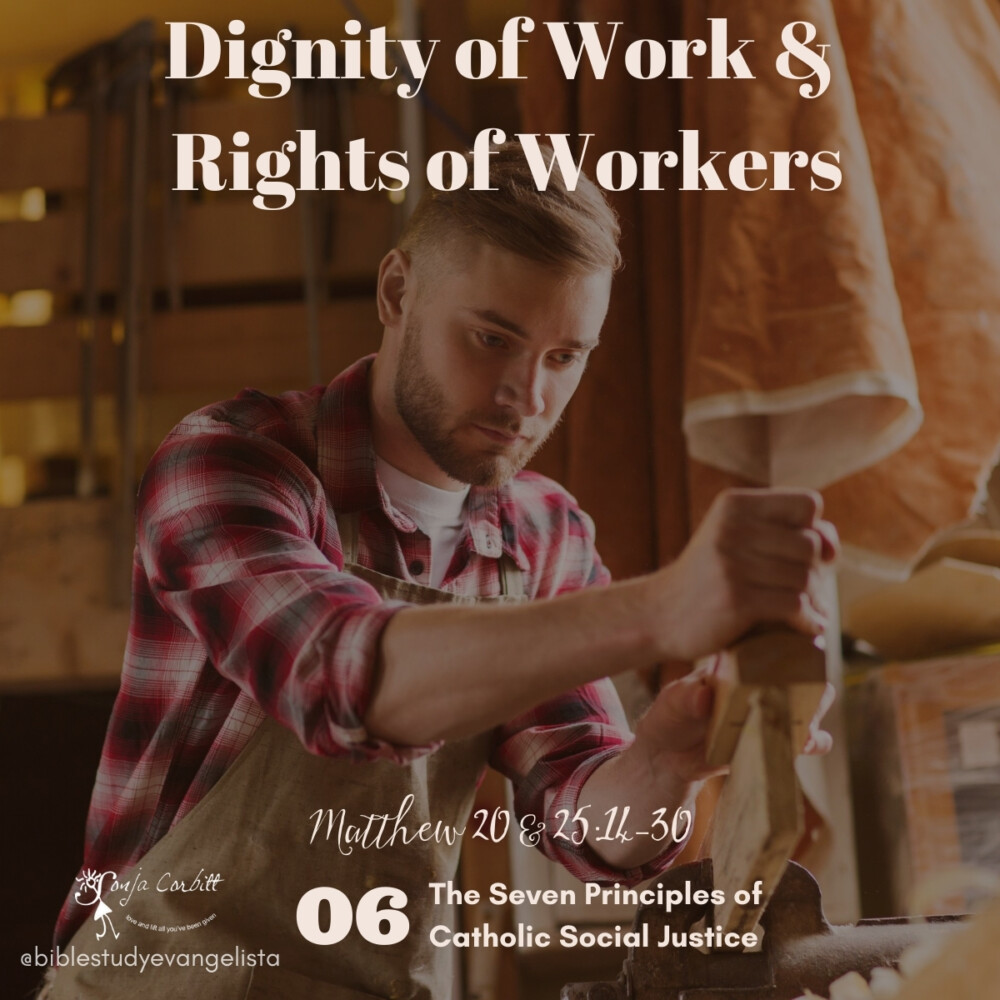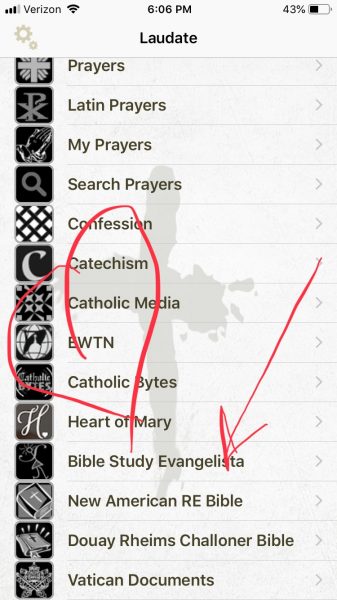For us as believers the dignity of work comes out of the whole theology of creation. Work is part of human dignity and written in natural law. As the parables of the talents and vineyard illustrate, every human being is created and gifted with special privileges – physical privileges, spiritual privileges, mental privileges, economic privileges, social privileges – precisely in order to use and work in them as God’s hands and feet on behalf of others, to make the world a more just and loving place.
The economy must serve people, not the other way around. Work is more than a way to make a living; it is a form of continuing participation in Gods creation. If the dignity of work is to be protected, then the basic rights of workers must be respected–the right to productive work, to decent and fair wages, to the organization and joining of unions, to private property, and to economic initiative.
Friends of the Show get all Premium Content! Thank you to my newest Friends of the Show: LeDeana O’N; Donna H; Marc P; Ellen G; Jamie R; and Mary E, for loving and lifting me!
LOVE the Word® is a Bible study method based on Mary’s own practice: lectio without the Latin. Get the book based on Sonja’s method in the right margin, How to Pray Like Mary.
L – Listen (Receive the Word via audio or video.)
O – Observe (Connect the passage to your life and recent events.)
Read about one school’s efforts to educate others about how purchasing fair trade products can help vulnerable persons around the world. How can you act in solidarity with workers in your community, or around the world, whose rights are violated?
From the Examination of Conscience in Light of Social Teaching
- As a worker, do I give my employer a fair day’s work for my wages? As an owner, do I treat workers fairly?
- Do I treat all workers with whom I interact with respect, no matter their position or class?
- Do I support the rights of all workers to adequate wages, health insurance, vacation and sick leave? Do I affirm their right to form or join unions or worker associations?
- Do my purchasing choices take into account the hands involved in the production of what I buy? When possible, do I buy products produced by workers whose rights and dignity were respected?
V – Verbalize (Pray about your thoughts and emotions.)
Remembering that He loves you and that you are in His presence, talk to God about the particulars of your O – Observe step. You may want to write your reflections in your LOVE the Word® journal. Or, get a free journal page and guide in the right-hand margin.
E – Entrust (May it be done to me according to your word!)
Lord, help me use my power as a consumer and voter to ensure that the dignity of workers is respected. May we urge business owners and policymakers to place the dignity of the human person at the center of economic decisions. Amen +
Show Notes
Topics Discussed:
Catholic social justice principle #5, the dignity of work and the rights of workers
Pope Benedict XVI, Charity in Truth (Caritas in Veritate)
Equity vs. equality
Privilege
Overview:
Minutes 00:12:00 – The dignity of work and theology of creation, the parable of the talents
Minutes 12:01-24:00 – Equality vs. equity, privilege
Minutes 24:01-36:00 – The parable of the vineyard
Minutes 36:01-48:00 – Ways to protect and defend the dignity of work and the rights of workers
Additional Resources:
More on the Dignity of Work and the Rights of Workers from the Bible and Church documents
United States Conference of Catholic Bishops, Seven Themes of Catholic Social Teaching
Book, Amazon: Compendium of the Social Doctrine of the Church, Pontifical Council for Justice and Peace and USCCB
Bible Study Evangelista is on the Laudate app!
Facebook Discussion Community
Read the Transcript
You can download a complete, word-for-word transcript.
Protected Content. Click Here to sign in




